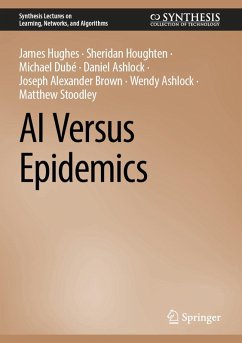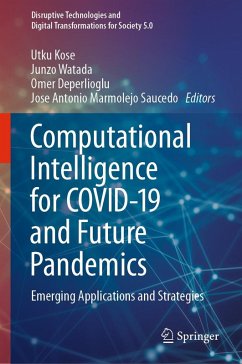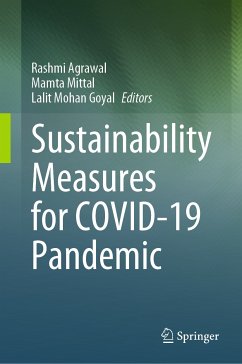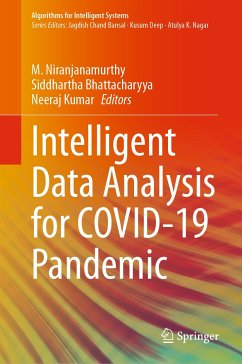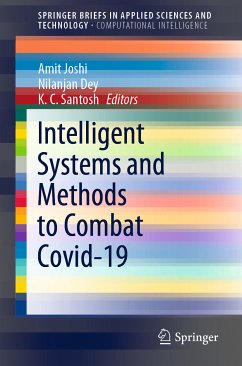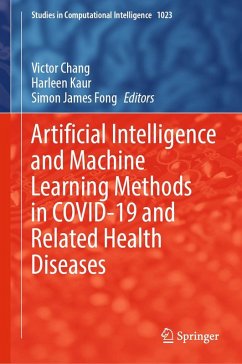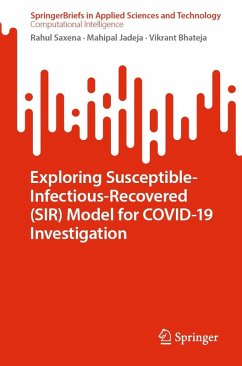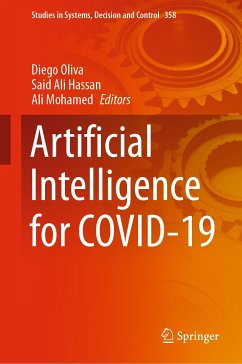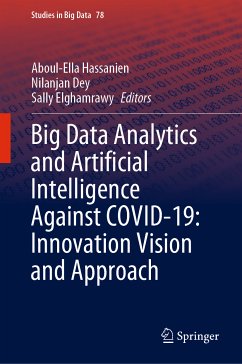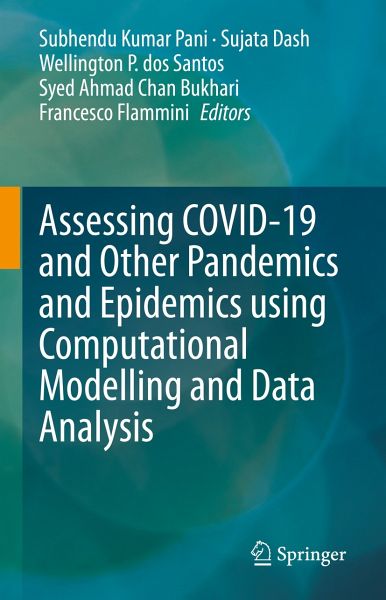
Assessing COVID-19 and Other Pandemics and Epidemics using Computational Modelling and Data Analysis (eBook, PDF)

PAYBACK Punkte
56 °P sammeln!
This book comprehensively covers the topic of COVID-19 and other pandemics and epidemics data analytics using computational modelling. Biomedical and Health Informatics is an emerging field of research at the intersection of information science, computer science, and health care. The new era of pandemics and epidemics bring tremendous opportunities and challenges due to the plentiful and easily available medical data allowing for further analysis. The aim of pandemics and epidemics research is to ensure high-quality, efficient healthcare, better treatment and quality of life by efficiently ana...
This book comprehensively covers the topic of COVID-19 and other pandemics and epidemics data analytics using computational modelling. Biomedical and Health Informatics is an emerging field of research at the intersection of information science, computer science, and health care. The new era of pandemics and epidemics bring tremendous opportunities and challenges due to the plentiful and easily available medical data allowing for further analysis. The aim of pandemics and epidemics research is to ensure high-quality, efficient healthcare, better treatment and quality of life by efficiently analyzing the abundant medical, and healthcare data including patient's data, electronic health records (EHRs) and lifestyle. In the past, it was a common requirement to have domain experts for developing models for biomedical or healthcare. However, recent advances in representation learning algorithms allow us to automatically learn the pattern and representation of the given data for the development of such models. Medical Image Mining, a novel research area (due to its large amount of medical images) are increasingly generated and stored digitally. These images are mainly in the form of: computed tomography (CT), X-ray, nuclear medicine imaging (PET, SPECT), magnetic resonance imaging (MRI) and ultrasound. Patients' biomedical images can be digitized using data mining techniques and may help in answering several important and critical questions related to health care. Image mining in medicine can help to uncover new relationships between data and reveal new and useful information that can be helpful for scientists and biomedical practitioners.
Assessing COVID-19 and Other Pandemics and Epidemics using Computational Modelling and Data Analysis will play a vital role in improving human life in response to pandemics and epidemics. The state-of-the-art approaches for data mining-based medical and health related applications will be of great value to researchers and practitioners working in biomedical, health informatics, and artificial intelligence..
Assessing COVID-19 and Other Pandemics and Epidemics using Computational Modelling and Data Analysis will play a vital role in improving human life in response to pandemics and epidemics. The state-of-the-art approaches for data mining-based medical and health related applications will be of great value to researchers and practitioners working in biomedical, health informatics, and artificial intelligence..
Dieser Download kann aus rechtlichen Gründen nur mit Rechnungsadresse in A, B, BG, CY, CZ, D, DK, EW, E, FIN, F, GR, HR, H, IRL, I, LT, L, LR, M, NL, PL, P, R, S, SLO, SK ausgeliefert werden.



